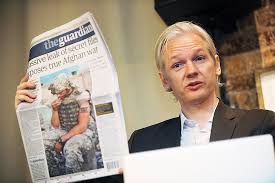In 2010, WikiLeaks orchestrated one of the largest leaks of classified military information in U.S. history, publishing hundreds of thousands of documents related to the wars in Afghanistan and Iraq. This unprecedented release provided the public with an unfiltered look at the realities of these conflicts and sparked intense debate about government transparency and national security.
The first major release, dubbed the “Afghan War Diary,” occurred in July 2010. WikiLeaks published approximately 75,000 classified U.S. military reports covering the war in Afghanistan from 2004 to 2010. These documents revealed previously unreported civilian casualties, detailed coalition forces’ operations, and exposed the challenges faced by military personnel on the ground. The source of these documents was later revealed to be U.S. Army intelligence analyst Chelsea Manning.
In October 2010, WikiLeaks followed with an even larger disclosure known as the “Iraq War Logs.” This release comprised nearly 400,000 U.S. military field reports from the Iraq War between 2004 and 2009. The documents exposed numerous instances of civilian deaths, detailed accounts of torture by Iraqi forces, and revealed that coalition forces had frequently encountered chemical weapons remains from the Iran-Iraq War.
The impact of these releases was immediate and far-reaching. Key revelations included:
- Documentation of approximately 15,000 previously unreported civilian deaths in Iraq
- Evidence of widespread use of contractor forces in both conflicts
- Detailed accounts of military encounters with insurgent forces
- Information about Iran’s role in supporting Iraqi militants
- Reports of Pakistani intelligence services’ collaboration with Taliban forces
The U.S. government strongly condemned these releases, arguing they endangered military personnel and intelligence sources. The Department of Defense established a task force to assess the damage, while the State Department began diplomatic damage control efforts with affected allies.
WikiLeaks’ founder Julian Assange defended the releases as necessary for public accountability and democratic oversight. The organization worked with major news outlets, including The New York Times, The Guardian, and Der Spiegel, to analyze and report on the documents’ contents. These media partnerships helped provide context and verification for the raw data while highlighting significant findings.
These leaks fundamentally changed the public’s understanding of the Iraq and Afghanistan wars and sparked crucial discussions about military transparency, journalistic responsibility, and the balance between national security and public right to information. The releases also set important precedents for future whistleblowers and digital activism.
newshub



Recent Comments